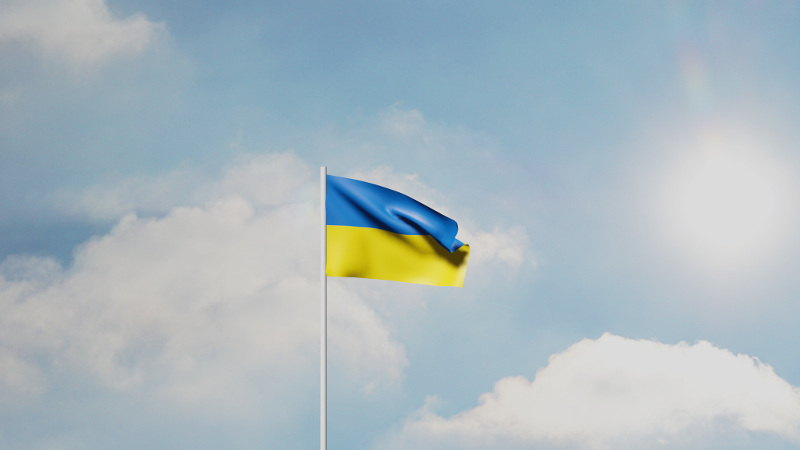Chronicle: Give the refugees time
Ukrainian refugees get a shorter introduction program and shorter time to learn Norwegian than other refugees. But a short training period is best for the most of the resourceful refugees. Those who have health challenges and concerns "in their baggage" risk being excluded.

One year after the Russian invasion, we see no signs that the war will end soon, and Ukrainian refugees' stay in Norway may be prolonged. Many of them also count on it themselves, according to figures from the Norwegian Institute for Urban and Regional Research (NIBR). Last year, over 30,000 Ukrainian refugees came to Norway, and Norwegian municipalities have been asked to settle 35,000 during 2023. Maybe more.
The vast majority of refugees are resourceful people. Nevertheless, we must not forget that many of them have both health challenges and worries when they come here. This applies to all refugees, including the Ukrainian ones.
An introductory program for the resourceful and healthy
A large proportion of the Ukrainian refugees have higher education. Therefore, everything should - apparently - be in order for them to go quickly through the introduction program and into the Norwegian labor market. Together with their temporary residence permit and capacity problems in Norwegian municipalities, this has led to changes in legislation. Ukrainian refugees receive a work-oriented and short introduction program of just six months (one year maximum) and have one year to learn Norwegian. Other refugees can use up to three years.
Based on our findings from the Helseintro research project at UiT Norway's Arctic University, we believe that the condensed introduction program for the Ukrainian refugees has a number of problematic aspects.
In our research, we examine how health challenges affect how much refugees in the ordinary introduction program get out of the program. We see that those with health challenges need time to learn, and that they risk falling outside both the program, work life and social life if they are given too little time. This applies even if they complete an introduction program that can last up to three years, and thus have more time than the Ukrainian refugees get.
A short introductory program can therefore favor those who have few health challenges and good conditions for learning Norwegian. This is in line with previous research that shows that a short introduction program serves those who, in any case, have the best conditions for success in Norwegian society.
Takes time to uncover health challenges
Like most other refugees, Ukrainian refugees have traveled from a homeland that has been attacked. Many have lost family members or have family still in Ukraine. We know that many of them carry psychological challenges and worries.
Just as with other refugees, we must therefore expect that many Ukrainian refugees will have poor conditions for rushing through the training in Norwegian and the introduction program at record speed.
The authorities are aware that some refugees need facilitation in order to get the best possible benefit from the introduction program and Norwegian training. Therefore, all refugees, both the Ukrainian and the others, have a right to accommodation if they need it.
But - we see that it takes a long time to uncover health challenges. There are capacity challenges in the health service and poor information flow between public services. There is also a different understanding between the refugees and the Norwegian aid apparatus about what actually constitute health challenges. All this often makes it difficult to put one's finger on the problems - and thus being able to do something about it.
Interviews with public employees have in our research project revealed that participants have almost completed the introduction program before their health challenges are uncovered. When Ukrainian refugees receive an even shorter program, this work can become particularly demanding for this group.
We also find that many refugees who are struggling in terms of health "limp" their way through the introduction program. The result is poor Norwegian skills at the end of the program, which in turn can give them problems entering the Norwegian labor market.
And even if one knew about the health challenges and could adapt the introductory program for those with health challenges, the big question becomes:
How can we facilitate better learning, when the refugees’ heads are full of worries for their own future - and for family members who are left behind in a country at war?
Our research on other groups of refugees clearly indicates that what would help them is time enough to learn in their own pace. But the Ukrainian refugees do not have this time.
Pay attention to diversity
Now that it appears that the stay of Ukrainian refugees in Norway may be prolonged, we should ensure that those with health challenges are also given good preconditions to enter into the labor market and become integrated into Norwegian society. A shortened introduction program can be counterproductive, where we risk not giving everyone a real chance to succeed - despite apparently good conditions.
The Norwegian Ministry of Labor and Social Inclusion has recently had a proposal on hearing about the continuation of temporary rules in the legislation as a result of the arrival of displaced persons from Ukraine. We hope that the ministry now looks at the integration of the Ukrainian refugees in a more long-term perspective, and that it takes greater account of the diversity of Ukrainian refugees and health challenges in the work ahead.
Neither the refugees nor Norwegian society is benefited by investing only in those refugees who do best. We have to bet on everyone.
Authors
Johanna Laue, project manager for the HealthIntro research project and associate professor at the Department of Community Medicine, UiT
Susanne Rolandsen, researcher at the Department of Community Medicine, UiT
Steinar Johansen, consultant, Kirkenes refugee and competence unit
This chronicle was first published in the Norwegian newspaper Dagsavisen on 12 March 2023.